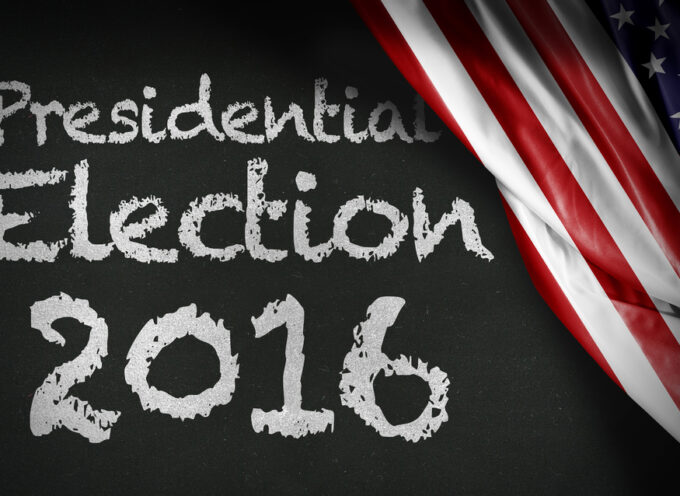On Tuesday, James B. Comey, director of the Federal Bureau of Investigation, announced that the bureau would not recommend criminal charges in Hillary Clinton’s handling of classified information. He charged her with being “extremely careless” but stopped short of seeking an indictment for gross negligence.
During the early months of the FBI’s investigation, she emphatically denied being at fault, calling the investigation a right wing conspiracy and likening it to a witch hunt. She was, in fact, very much at fault, having lied to the American people and having been, at the least, “extremely careless” in her handling of classified information.
The Facts
Comey summarized the F.B.I.’s findings, many of which are new and most of which are damning. The findings prove that most of Clinton’s public statements about her private server were not true, and some of them were pants-on-fire lies.
Of the 30,000 emails Secretary Clinton turned in to the State Department in December 2014:
• 52 different email chains contained classified information at the time they were sent.
• 8 email chains contained “confidential” information, which is the lowest level of classification.
• 36 chains contained “secret” information, which is a higher level of security classification.
• 8 email chains contained “top secret” information which is the highest level of classification.
Additionally, the FBI obtained several thousand work-related emails that Clinton did not hand over to the State Department in December 2014. Of those emails, two were classified at the “confidential” level and one at the “secret” level.
The Significance
Now that the F.B.I. considers the investigation closed, why does Clinton’s “extreme carelessness” still matter? It matters for at least two reasons.
First, it matters because the United States claims to be a law-governed democracy. No, the F.B.I. did not seek an indictment of Clinton. Comey declared that they could not seek an indictment, because the F.B.I. could not find evidence that she intentionally sent or received classified information. This argument, however, leaves one unconvinced. How could Clinton not have known she was sending and receiving classified information? We’re talking about fifty-two email chains. Fifty-two. Email chains. How was this not “gross negligence”? As various legal experts have noted, Comey’s conclusions do not make sense.
Additionally, Americans will have difficulty trusting the outcome of the investigation in light of the fact that, just days before the announcement, Bill Clinton met privately on an airplane with Attorney General Loretta Lynch. This meeting raises questions about whether the Justice Department’s integrity and independence has been compromised. The whole affair makes it seem that the United States has reverted to the ancient dictum, “The King Can Do No Wrong.”
But let’s give Comey and Lynch the benefit of the doubt. Comey has proven an upright guy before. He was willing to clash with several presidential administrations, including Obama’s, and we have no evidence that Lynch did anything wrong.
Even if Comey and Lynch were upright and even if it were true that that Clinton did not intentionally send or receive such classified information (and that is a very big “if”), Americans still deserve to know why Clinton is not being penalized for her negligent actions in some significant manner. After all, General David Petraeus lost his job and was fined $100,000 for mishandling classified information. There is a significant disparity here. For a lesser offense, Petraeus received serious disciplinary action, while Clinton gets off scot free. Shouldn’t we ask if the powers that be think our country’s laws only apply to the “little people”? Or do they apply to America’s political “royalty” as well?
Yes. We should and they do.
Second, it matters because Clinton’s repeated denials undermine her claim to be an honest and trustworthy candidate for President of the United States.
As far back as August 2015, before the email investigation had picked up steam, a poll released by Quinnipiac University revealed that 61% of Americans viewed Clinton as dishonest and untrustworthy. In the poll, voters were asked to say the first word that came to mind when they thought of Hillary Clinton. Their top responses? “Liar,” “dishonest,” and “untrustworthy.”
For those of us who already find her dishonest and untrustworthy, Clinton’s repeated dishonesty about her handling of classified and even top secret information serves to confirm and strengthen our suspicions. Shouldn’t this type of behavioral pattern cause us to question her viability for the office of President of the United States?
Yes. It should because it does.
An Evangelical Response
What is an appropriate evangelical response to these revelations? We should criticize Hillary Clinton’s pattern of deceiving the People and call into question her viability for the highest office of the land, but we should be careful not to do so with a “better than you” disposition. The fact is that, as humans, each of us is deeply flawed and in need of redemption. Christians, of all people, should recognize this. We should expect our Presidential candidates to be flawed just as we are.
So on the one hand, we should not demonize candidates for their flaws. On the other hand, we should not ignore their flaws. We should instead ask whether those particular flaws should keep us from trusting them in this particular office, the Presidency of the United States of America. Does the candidate have misdeeds too grave, or flaws too serious and ongoing, for us to trust her with the highest office of the land? Evangelical voters should give consideration to this question as they enter November’s voting booth. My answer is yes.
Subscribe
Never miss a post! Have all new posts delivered straight to your inbox.








While I recognize that all of us are flawed before God, many of us have never broken federal law by deliberately and purposefully ignoring the law of the government in which we served in an official capacity. Most people never need to know about the law Hillary Clinton broke in the course of her responsibilities as Secretary of State.
The Declaration of Independence was a declaration that the people who govern a nation are accountable to the people for obeying the law of the land and for respecting the citizens. We have been involved as a nation in freedom fights around the world where we helped oppressed people depose tyrants who thought they were above the law.
Hillary Clinton has a right to due process and a fair trial. She does not have a right to thumb her nose at the very laws the President takes an oath to execute.
Katherine, I think that is Bruce’s point exactly. That she should be held accountable and that she is not fit to be president. By saying we should not “demonize” her, I think he refers to the human tendency to–at a personal level–launch vicious attacks against political candidates as if they were Satan incarnate…when in reality they are, for example, dishonest and power-hungry. Such character flaws may make them unfit for office, but they don’t give believers grounds to assassinate their character indiscriminately or to speak of them with arrogant, condescending attitudes. I don’t think his post is at odds with what you said. Does that make sense?
The situation is fluid: Clinton could still face prosecution on corruption charges, for example. But as things stand right now, people’s confidence in government–and other institutions–is likely to reach new lows. Very few people trust Congress, as shown by repeated polls. Both leading presidential candidates have low trust and high negatives. The military services enjoy considerable prestige. In most other countries, such a situation would be a recipe for a coup. Will we be different, or is the book about to be closed on the American experiment with democracy?
Suppose we grant HRC the benefit of a doubt. Perhaps she did not INTEND to do the crimes and put the US at great risk. This would mean that she did all in ignorance. That’s equally egregious, maybe worse. It means complete incompetence and a lack of common sense. But HRC is a very shrewd and intelligent person. Thus we are back to intentional acts of deception. Here’s my hunch (just a gut check): Comey and Lynch found out the horrible content of those emails and cannot let that emerge in a trial due to epic consequences.
Trying to remember–is it guilty until proven innocent or innocent until proven guilty? Funny how the tables have turned.
That’s the American way, eh?